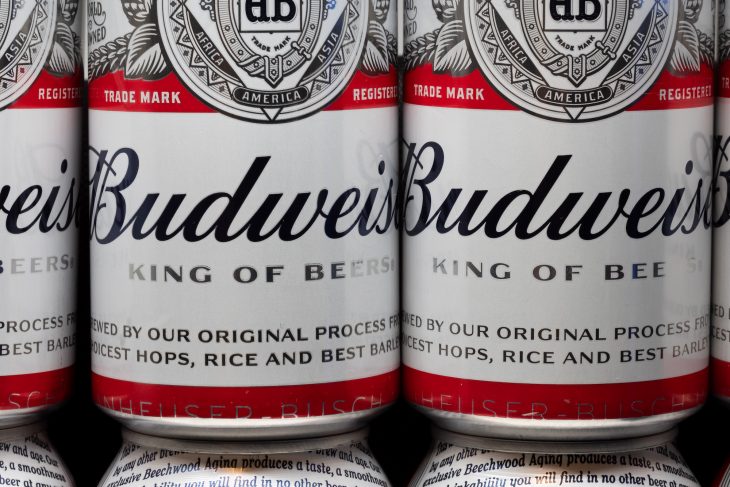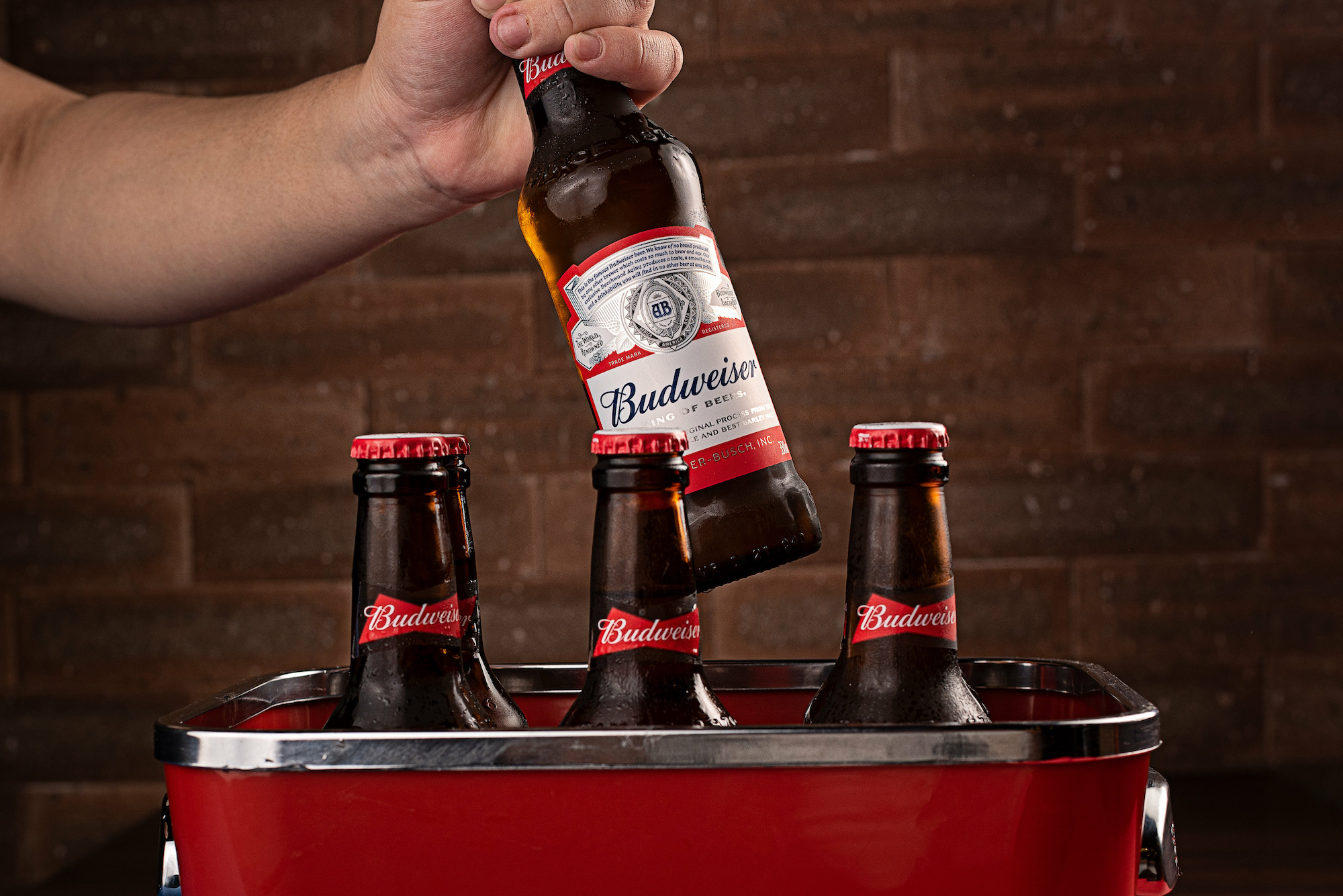
Budweiser has been an American favorite since 1876 and continues to be one of the most popular lagers in the world. While beer can be thought of as not on the healthiest side, there’s no doubt it has made its way into partaking in many summer barbecues and well-deserved after-work rewards. To give a better understanding of what has gone into each bottle or can, we have compiled a detailed list describing all the nutritional facts associated with Budweiser Lager Beer. Keep reading for more information that just might surprise you!
Calories
A standard 12-ounce (355 ml) serving of Budweiser contains approximately 145 calories. The calorie content in Budweiser comes from both the alcohol and carbohydrates present in the beer. When compared to light beers, Budweiser has a slightly higher calorie count.
Carbohydrates
Each 12-ounce serving of Budweiser contains about 10.6 grams of carbohydrates, primarily in the form of simple sugars from the brewing process. This makes Budweiser a moderate source of carbohydrates compared to other types of beer, such as stouts or IPAs.
Fat Content
Budweiser is a fat-free beverage, containing 0 grams of fat per 12-ounce serving. This is consistent with most types of beer, which typically contain minimal fat.
Protein Content
Budweiser contains 1.3 grams of protein per 12-ounce serving. While this is a relatively small amount of protein, beer can still contribute to your daily protein intake.
Sodium
A 12-ounce serving of Budweiser contains 12 milligrams of sodium, which is a very low amount. This makes Budweiser a suitable option for individuals who are watching their sodium intake for health reasons.
Sugar Content
Budweiser has a relatively low sugar content, with only 1.4 grams of sugar per 12-ounce serving. The majority of the sugar in Budweiser comes from the fermentation process, as residual sugars are left after the yeast consumes the maltose and other fermentable sugars in the brew.
Alcohol Content
Budweiser has an alcohol content of 5% ABV (alcohol by volume), which is considered standard for most beers. This means that a 12-ounce serving of Budweiser contains about 0.6 ounces of pure alcohol.

Budweiser Select 55
For those looking for a lower-calorie option, Anheuser-Busch offers Budweiser Select 55, which contains only 55 calories and 1.9 grams of carbohydrates per 12-ounce serving. However, this light beer also has a lower alcohol content of 2.4% ABV.
Bud Light
Another popular alternative to the original Budweiser is Bud Light, which has fewer calories and carbohydrates. A 12-ounce serving of Bud Light contains 110 calories and 6.6 grams of carbohydrates, while maintaining a 4.2% ABV.
Gluten Content
Budweiser is brewed with barley malt, which contains gluten. This means that Budweiser is not suitable for those with celiac disease or gluten sensitivity. However, Anheuser-Busch does produce gluten-free beer options, such as Redbridge, for those who cannot consume gluten.
Budweiser Prohibition Brew
For those seeking an alcohol-free alternative, Anheuser-Busch offers Budweiser Prohibition Brew. This non-alcoholic beer aims to deliver the taste and experience of Budweiser without the alcohol, making it a suitable choice for designated drivers, pregnant women, and anyone else who wishes to avoid alcohol.
Water Content
Beer, including Budweiser, is primarily made up of water. This makes staying hydrated while drinking beer important. However, it’s crucial to remember that drinking beer is not a substitute for drinking water, as the diuretic effect of alcohol can lead to dehydration.
Budweiser Zero
Another alcohol-free option in the Budweiser line is Budweiser Zero. This non-alcoholic beer contains zero sugar and only 50 calories per 12-ounce serving. It’s a great choice for those who want to enjoy the flavor of beer without the alcohol or sugar content.
B Vitamins
Beer, including Budweiser, is a source of B vitamins, particularly B3 (niacin), B6 (pyridoxine), and B9 (folate). These vitamins are essential for various bodily functions, including energy production and maintaining heart health.
Mineral Content
Budweiser, like many beers, contains small amounts of various minerals, including potassium, magnesium, and phosphorus. These minerals are essential for maintaining good health, although the amounts present in beer are relatively small compared to other dietary sources.
Antioxidants
Budweiser, like other beers, contains antioxidants, primarily in the form of phenolic compounds derived from the grains used in brewing. However, the antioxidant content in beer is relatively low compared to other sources, such as fruits and vegetables.
Moderate Consumption
As with any alcoholic beverage, it’s important to consume Budweiser in moderation. Excessive alcohol consumption can lead to a range of health issues, including liver disease, heart disease, and an increased risk of certain cancers. The Centers for Disease Control and Prevention (CDC) recommends up to one drink per day for women and up to two drinks per day for men.

Pairing with Food
Budweiser, with its balanced and versatile flavor, pairs well with a variety of foods. It’s a classic choice for barbecues, pairing excellently with grilled meats, burgers, and spicy foods.
Budweiser and Weight Management
If you’re watching your weight, it’s important to remember that beer can contribute to your daily calorie intake. Opting for Budweiser’s lower-calorie options, such as Budweiser Select 55 or Bud Light, can help you manage your calorie consumption.
Impact on Blood Sugar Levels
While Budweiser has a relatively low sugar content, it can still affect your blood sugar levels due to its carbohydrate content. People with diabetes or those watching their blood sugar levels should consume Budweiser and other beers in moderation.
Conclusion
It’s no surprise that Budweiser has become one of the most popular beers in the world. From its rich taste to its smooth finish, it’s easy to see why so many people enjoy a cold Budweiser in their hands. What makes Budweiser even more incredible is how much nutritional value the lager beer contains. With high levels of protein and low levels of carbs, it’s hard to deny that this is one of the better choices when it comes to alcoholic beverages. So if you’re looking for a great beer for your next barbecue or just for a casual Sunday afternoon, you can feel good about cracking open a cool Budweiser. You won’t regret it!
Was this page helpful?
Our commitment to delivering trustworthy and engaging content is at the heart of what we do. Each fact on our site is contributed by real users like you, bringing a wealth of diverse insights and information. To ensure the highest standards of accuracy and reliability, our dedicated editors meticulously review each submission. This process guarantees that the facts we share are not only fascinating but also credible. Trust in our commitment to quality and authenticity as you explore and learn with us.
